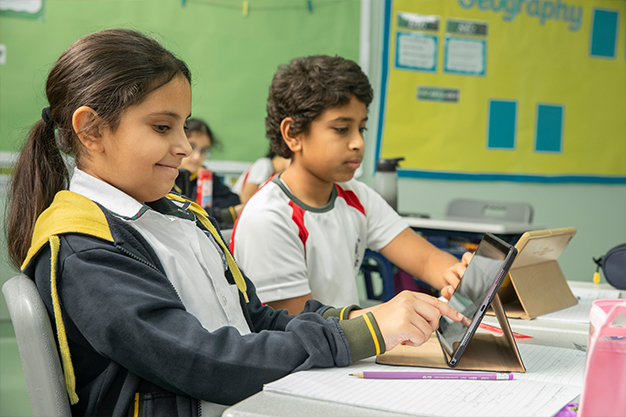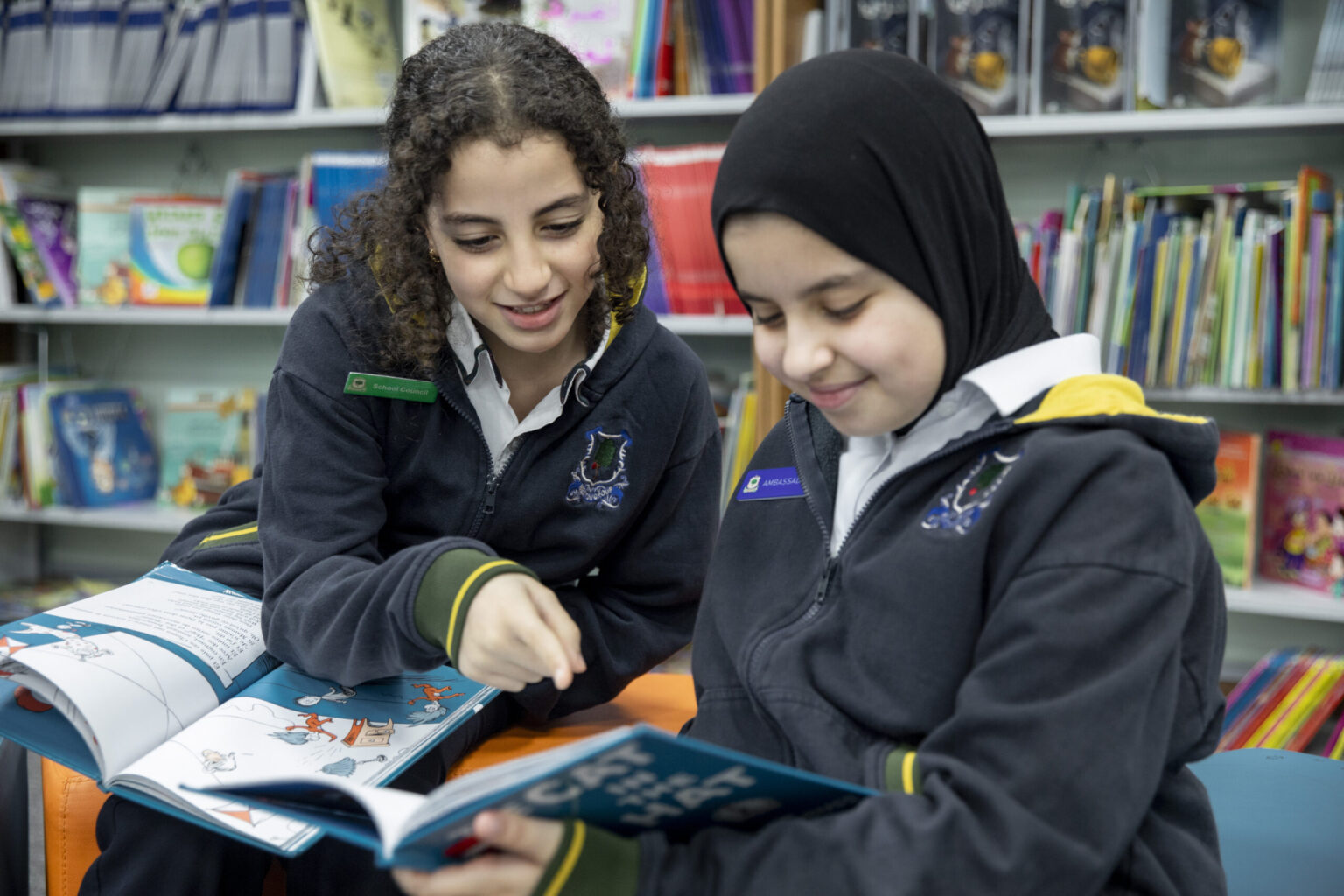- info.westbay@newtonschools.sch.qa
- +974 5005 9697

Our Primary Schools include Year 1 to Year 6 across Key Stage One and Key Stage Two. As our students transition from Early Years to the Primary School, they continue to grow as independent learners. Class teachers and subject specialists work together to develop and stretch each child’s thinking, develop their abilities to observe, question and engage in investigative work across all curriculum areas.
As the students grow and continue to learn, they build on their abilities to be more independent in their, we continue to stretch the range of challenges that they are exposed to. They are encouraged to explore key topics across all the subject areas available, and build their depth of understanding.
Our contextual teaching style enables our students to continuously make real world connections, to allow their learning to come alive and ensure that the skills that they learning are not forgotten as they move forward through the school. Our aim is to connect thoughts and learning to the real world in which our children live.
| English | History | Mathematics |
|---|---|---|
| Arabic 1st Language – Native speakers | Art/ Design & Technology | Geography |
| Arabic 2nd Language – Non native | ICT | Science |
| Citizenship | Islamic Studies – Muslim Students | French |
| Philosophy for Children (P4C) | Qatar History– Arabic/English | Music |
| Physical Education (PE) |

English has a pre-eminent place in education and in society. A high-quality education in English will teach pupils to speak and write fluently so that they can communicate their ideas and emotions to others and through their reading and listening, others can communicate with them. Through reading in particular, pupils have a chance to develop culturally, emotionally, intellectually, socially and spiritually. Literature, especially, plays a
key role in such development. Reading also enables pupils both to acquire knowledge and to build on what they already know. All the skills of language are essential to participating fully as a member of society; pupils, therefore, who do not learn to speak, read and write fluently and confidently are effectively disenfranchised.
The overarching aim for English in the national curriculum is to promote high standards of language and literacy by equipping pupils with a strong command of the spoken and written word, and to develop their love of literature through widespread reading for enjoyment. The national curriculum for English aims to ensure that all pupils:
The programmes of study for reading at key stages 1 and 2 consist of two dimensions:
The programmes of study for writing at key stages 1 and 2 are constructed similarly to those for reading:

"*" indicates required fields
"*" indicates required fields